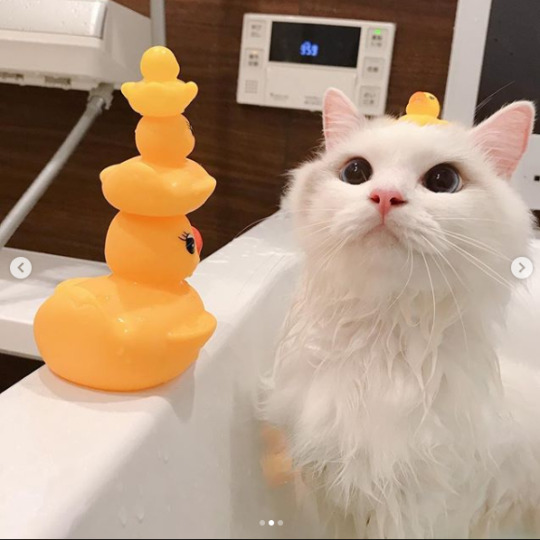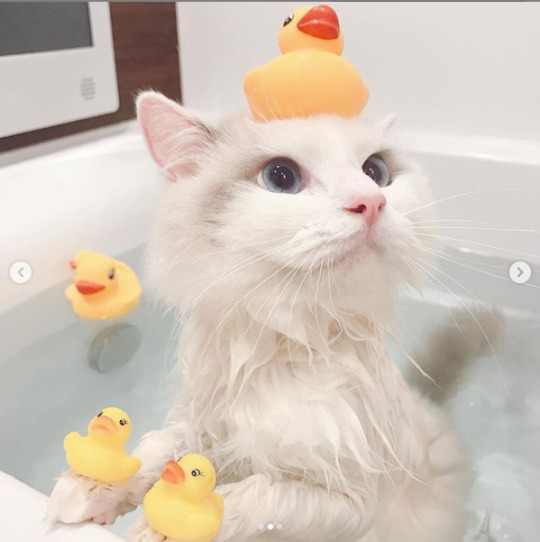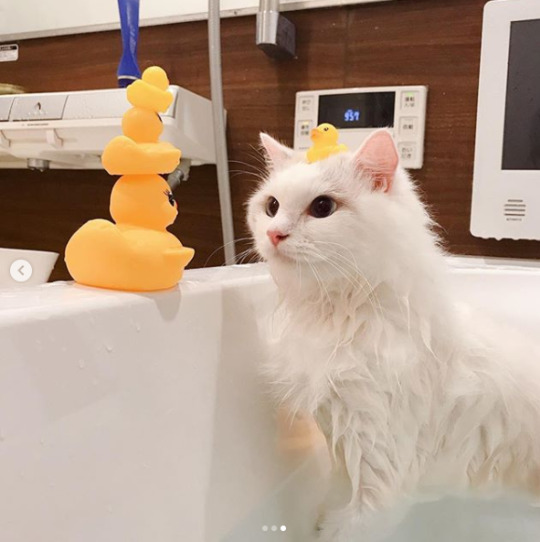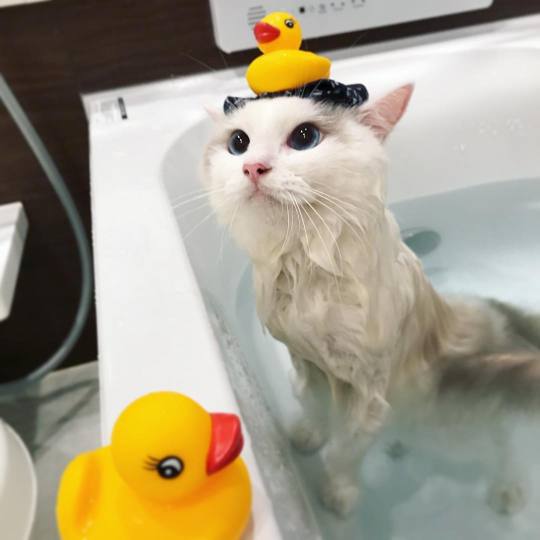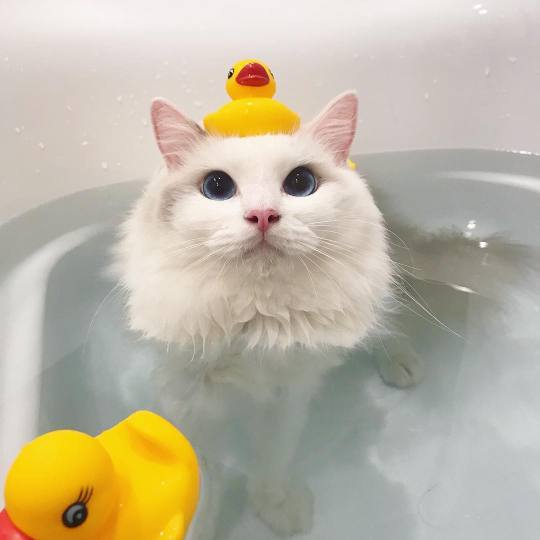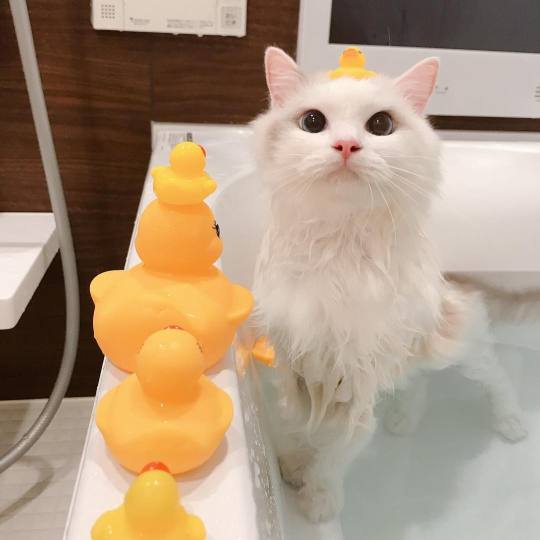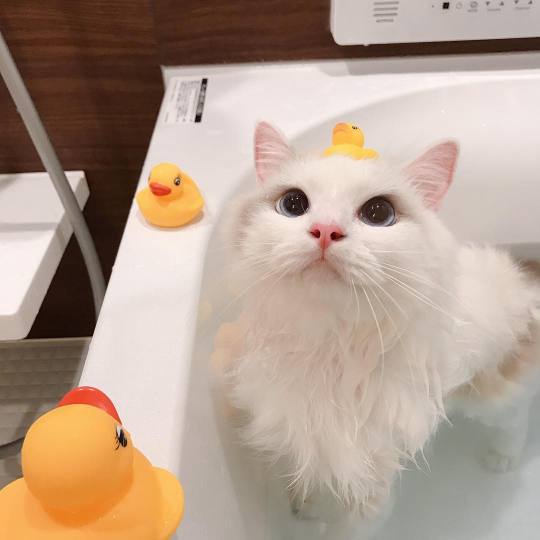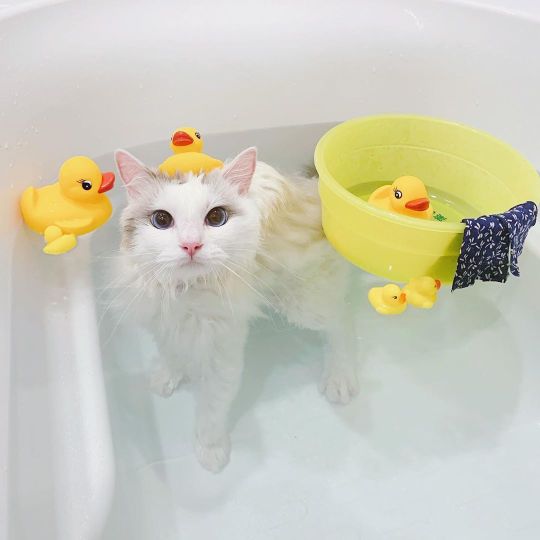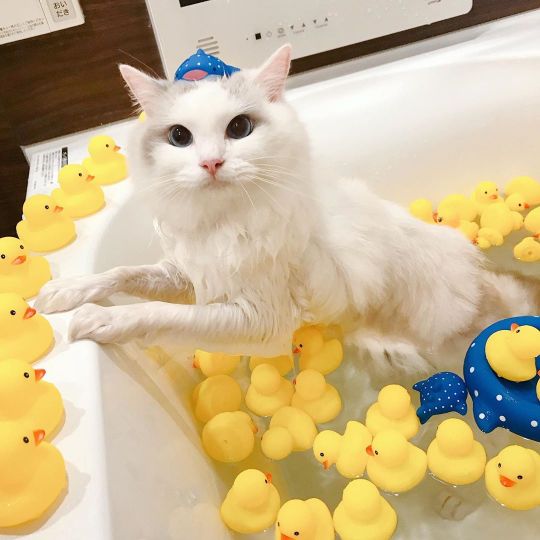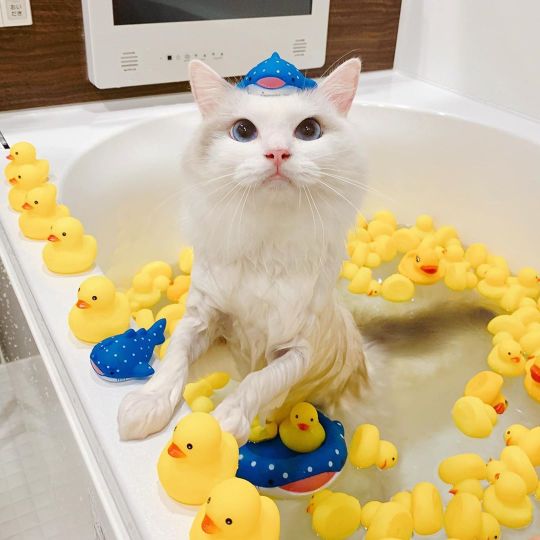banh---bao's studyblr bc i'm irresponsible. Ares | 16 | Viet-American | trying to survive junior year
Don't wanna be here? Send us removal request.
Text
Grow Up - Glo Up Tags Masterpost
The tags have been available on the blog site for a while, but I decided to put them in a post that you lovelies can save for future references as well. Enjoy💋
Bathroom ~ Cleaning and bath time fun
Beauty ~ Skincare, makeup, you get the gist
Bedroom ~ Organization, decorating, and possible relationship advice
Carpe Diem ~ How to get yoself together and become a better person
Cleaning ~ Overall organizations and cleaning tips
Education ~ Your brain is your biggest asset, so feed it
Earth ~ Zero waste, and other things regarding the planet we depend on but treat poorly
Finance ~ Money, and how to get more, and keep what you have for longer
Fitness ~ Get off the bed and keep your body and mind fit
Food ~ Any recipes or food related content
Garden ~ Plants, gardening, and how to develop a green thumb
Glo Up ~ Inspirational glo up pictures and stories
Grounding Box ~ Hobbies and knickknacks to ground yourself with when responsibilities overwhelm you
Health ~ I just want y'all alive and well
Home ~ How to turn your house into a home
Kitchen ~ Y'know that place in the house where you’re supposed to cook and store food?
Languages ~ Learning languages is always fun and good for you
Luxury ~ The finer, more selfish, things in life, because I’m selfish
Mod Musings ~ Just me rambling into the abyss and sharing snippets of my life with strangers on the internet
Mod Stuff ~ Any updates or information I want to tell you guys regarding this blog
Moving ~ We can’t all live in our parents’ basements forever
Parenting ~ Can you believe some of us are responsible for little humans?
Pets ~ They’re basically millennial kids, anyways
Relationships ~ Platonic and romantic
Resources ~ External resources that may be beneficial to you
Reproductive Health ~ Your body, sex, and how to do it right
Safety ~ Stay safe, slay safe
Socialize ~ We all have to talk to other humans at some point
Style ~ Clothes, fashion, just put something on, please
Tech~ Tumblr-related stuff and other technology and internet stuff
Travel ~ The world is your oyster so explore it
Vegan ~ Any recipes or food advice that applies to the vegans as well
Work ~ Unfortunately, capitalism makes the world go round
Writing ~ For the little souls with lots of stories to tell
8K notes
·
View notes
Text
I bestow upon thee; concept playlists
•classical music to sip tea to while contemplating philosophy and the next marble bust you’ll buy
•stealing books from the Oxford library with friends you never thought you’d find, in the snow, yelling about Ovid, lighting candles
•folky music for sitting on your front porch in the lazy evening sun, surrounded by your closest friends, gazing at a wheat field and singing along with a guitar in your arms
•feeling listless; like you’re walking the world alone, wandering with no destination, held in the arms of the earth and happy with that
•songs to sing LOUD in the car on a road trip going nowhere in particular
•staring out the window of a quaint coffee shop, watching the raindrops cling to the glass and thinking of all the poetry you’re going to write for that lover you left behind
•looking back on a long relationship and realizing all the ups and downs you’ve had as one, suddenly seeing it all in slow motion like a silent film
•laying back on your bed, smiling uncontrollably, thinking of all the beautiful, bucolic times you’re going to have in the sun with that person you can’t stop thinking of
•a rock in your rib-cage, sobbing on the floor, feeling empty; things are coming to an end and you can’t bear to see them go
•the first day of summer – sprawling yourself in the green & vivacious grass, heart shaped sunglasses perched on your nose; youth in all its glory
•songs that bring back days of your old glory, reliving your childhood and your golden days, tracing over the old scars and remembering how you got them
•the smell of old books, melancholy, songs that are so potent with a sort of wild and tragic longing that they’re almost dangerous
•looking out a car window; letting your eyes cling to weeping trees and then letting them snap back again. feeling self centered and tragical.
•literally just songs that remind me of Oscar Wilde and Bosie Douglas
•stuff that i’m listening to right now! always changing, songs that i’m playing on repeat
4K notes
·
View notes
Text
20 important study skills/tips i’ve learned from my professors
1. start studying a week before every quiz/test. seriously.
2. watch youtube videos/ted talks on the topics you are learning about.
3. get lots of sleep! sleep helps you process the day’s events, including what you learned.
4. write out your notes. it’s proven that handwritten notes help you learn better than typed out notes.
5. don’t just read what your professor gives you. find academic journals, books, etc. that correspond with your subjects.
6. read the news! especially in the social sciences/humanities, connecting concepts with current events helps you understand and process more easily.
7. exercise! this doesn’t have to be going on runs or lifting weights, it could even just be going for a 20 minute walk. just get your blood pumping, it’ll help you focus.
8. study at your desk. it may be tempting to study in bed, but your brain connects your bed with sleep, so you’ll get tired more quickly.
9. reviewing notes doesn’t have to be something you sit down and do for an hour. skim through them and test your memory while eating breakfast!
10. expand your study time throughout the day to avoid burnout. for example, rather than studying for 5 hours straight, study for an hour here and there in between your activities.
11. make your notes organized and easy to read, but not distracting. bright colors and flashy notes may seem better, but can sometimes distract from the purpose of the notes.
12. use apps such as quizlet. this way, you can go through definitions while waiting in lines or walking to class.
13. it’s more important to know concepts rather than facts. for example, you should be able to take what you know and apply it to different situations, not just the situation the textbook gives you.
14. just because the professor doesn’t require you to read textbook, doesn’t mean you shouldn’t. it helps explain concepts in a different way than your professor, and a lot of times hearing two different explanations for the same concept helps you understand it.
15. read in advance. read the textbook before your professor begins going over the chapter, so when he/she does, you can easily follow what they are saying.
16. do any extra credit work that comes your way. even if you don’t need the extra boost now, you might later.
17. go to class!! if you always skip class and show up at office hours completely lost on the concepts, they’ll laugh in your face. they’ll take you 100x more seriously if you show up.
18. however, if you are sick, take a day off. it’s more beneficial to you in the long run.
19. learn how to say “no”. if you have an 8 am the next day, don’t stay out until midnight with your friends.
20. don’t stress too hard over quizzes. if you expect them to go horribly, they will. you got this.
35K notes
·
View notes
Text

Hey so, I decided to do another masterpost. This time on exams. Some tips for studying at the very last minute if you are like me, disclaimer: I am not in any way supporting cramming but this is just to help you through if you are left with no choice other than cramming.
Cramming
Cramming tips that actually work by @optomstudies
The night before the exam
What to do the night before an exam by @beautifullearning
The night before your exam by @tiny-personal-university-thing
The night before exam and I didn’t study guide by @renaistudying
The night before test and I haven’t started studying by @getstudyblr
Revision methods
Revision methods that actually work by @alimastudies
The 5 Best Revision Methods by @bstudies
Study tips
More unconventional study tips by @minimaliststudy
A stash of tiny study tips by @justestjarchives
College study tips that actually help by @samsstudygram
Five tips for study marathons by @booksavolonte
General study tips by @plantednotes
More study tips
My study tips by @anatomyandcappuccini
My study tips
Personal study tips
Quickfire study tips by @annabaestudying
Quick study tip by @studyspiratiom-coffee
Rare study tips by @studybllog
Scientifically proven study tips by @swankiegrades
Secret study tips I wish someone would have told me by @fearlessroadtomd
Some rare study tips by @organisedorgana
Top 5 study tips by @studyign
Weird study tip by @artemissstudies
101 study tips by @study-early
Study tips by @howtohighschool
Study tips from someone who has already been there by @haylstudies
Study tips straight from my professor by @just-refuse-to-be-stopped
Study tips that helped me get back on my feet by @sillydaisies
Study tips that aren’t bullshit by @thebitchwhomadeit
Tips for effective study by @kimtented
How I write revision summaries by @athenastudying
Ways to study for exams that are actually productive
10 mistakes when studying by @howtostudyquick
Memorising information
How to memorise information by @monetstudy
How to memorise information faster by @qxzu
Memorization tips by @aescademic
Memorization tips by @determinationandcaffeine
Memorization tips by @studyquill
Exam tips
How to cope with exams by @uk-studying
How to revise for exams by @a-pro-s-studyblr
Studying for exams by @orangeblossomstudies
Tips for doing well on your exams by @aboysstudyblr
Tips for doing well on your exams by @thepeachystudies
Exam tips by @studywithmaggie
Exam guides
Finals: study guide for the brave by @educatier
Pennyfynotes guide to exam season by @pennyfynotes
Quick guide to doing the finals by @inkskinned
Test taking tips
How I revise for exams + tests
How to study for a test by @tbhstudying
My test taking tips by @55studies
Test taking tips
Exam preparation
How to make a stress free exam plan by @marias-studyblr
How to mentally prep yourself for a test by @eruditicn
Procrastination
How to beat procrastination by @eintsein
Types of procrastination and how to deal with them by @emmastudies
Time management
Time management by @academiceve
Time management tips for busy students
Motivation
My motivation tag
Other masterposts by me
Notetaking masterpost
College advice masterpost
Apps for students masterpost
Icon credits to @rhubarbstudies
21K notes
·
View notes
Text
SCHOOL CHEAT SHEET!!
soothe yourself | self care
stationery
printables
helpful sites
music for studying | more music
note taking methods | another one
studying methods
english | physics | chemistry | biology | maths | languages
how to learn a language
ultimate guide for writing | writing resources | writing helps | tips for writers
how to write a kickass essay | write a great essay | stuff you need to write essays | essay tips | essay checklist | grade your essay
how do I study for…
bullet journals | a guide to bullet journals
the testing effect
everything you need to succeed in school
time management
organisation
how to annotate | another one
guide to aesthetically pleasing notes | improve your handwriting
create a study guide
resources | helpful websites | there’s an app for that
get more out of google
productivity resources | 14 apps to become productive | how to stay productive
lazy night owl school survival guide
apps for a better life | useful websites for students
masterpost of studying tips
social media citation guide
college masterpost | another one | starting college on the right foot | packing for college | how to survive in college
how to ace that college interview
food to stay motivated | motivation guide
how to stay awake in class
balancing a healthy lifestyle
studying on your period
huge masterpost for the semester
a very long list to help you survive school
not enough time to finish an assignment?
100 delicious cheap recipes
53 posts for students
high school cheat sheet
other cheat sheets
55K notes
·
View notes
Text
10 Angry College Tips For Incoming Freshmen
(I finished my freshman year this spring with a 4.0 GPA, an off-campus research internship, and three professors contacting me suggesting that I apply for a fulbright scholarship. These tips aren’t coming out of my ass.)
1. LISTEN TO ME WHEN I SAY THIS: YOU DO NOT NEED TO “GET INVOLVED” IN STUPID CLUBS IF YOU DON’T ENJOY THEM. Hear “get involved! :)” for the 1000th time and just barf in your mouth a little and move on. If you work hard and get good grades, and socialize with people on campus when you have free time (it comes more naturally than you think) YOU WILL. BE. FINE. Actually better than fine. You’ll have time to get a real job/internship, which by the way, is what the real world wants to see you prioritizing. Moral of the story: Only join clubs if they help your personality thrive and feel healthy. Don’t do them because you feel pressured.
2. DON’T TAKE SHIT FROM A N Y O N E. I know you’re trying to fit in and take the stance of trying to make everyone happy to make sure you’ll have plenty of friends. But you have to realize that you literally just met these people, and they just met you. If they create an uncomfortable environment for you that makes college harder to cope with, get them the fuck out of your life. Ain’t nobody got time for people’s high school-ass drama.
3. SKIP YOUR CLASSES SOMETIMES. If you really have your shit together, it won’t matter. Your school will say the amount of skips you can get away with before it harms your grade. Use. Them.
4. BECOME THE MASTER OF WRITING ESSAYS IN ONE NIGHT. You will have to. I’m telling you right the fuck now. And you can get an A, if you work your lil ass off. I’ve done it many times.
5. DON’T CARE FOR EVEN 1 SECOND WHAT OTHER PEOPLE THINK OF YOU. If you wanna wear sweats and no makeup, do it. If you want to dress up and take time to put on makeup, do it. If you want to stay away from partying, do it. If you want to party, have a good ass time. If anyone has enough time to judge you, they need to be studying harder or getting a hobby. Make yourself comfortable and happy as fuck and enjoy your time in college worry-free.
6. BE THE ASSHOLE WITH A TABLET OR LAPTOP IN LECTURE. You won’t have time to copy it all down. You’ll be miserable. Just trust me. I know studies say its more effective to write stuff down for memory, but, write them out later or something. Learned that one the hard way.
7. DON’T REWRITE YOUR NOTES IF IT DOESN’T HELP YOU STUDY. If you know doing that doesn’t help you memorize, don’t do it, period. Or, if you have a collossal asston of notes (like I did) it isn’t even worth rewriting them all in the first place. I’ve fallen down that hole and lost motivation and time. Just reread them or make flashcards or whatever. Study for effectiveness, not aesthetic.
8. BE PREPARED FOR LAB TO GO THE “WHOLE TIME.” Yah, you’re gonna see 3 hours on that brand-shiny-new schedule of yours and be like there’s no way it’ll go that long, right? LOL about that. Just mentally brace yourself. Eat and drink beforehand for the love of god we don’t need hangry people handling chemicals.
9. COMMUTING DOESN’T MAKE YOU A LONER. Just. No. If you live close to campus, are comfortable with commuting, and know you’ll save yourself MAJOR debt by doing it, do it and don’t feel a fucking ounce of guilt about it. It’ll be some early mornings, but your fresh out of college broke ass will thank you, and you’ll use your time more effectively. (Plus you get a non grimy shower like??)
10. LOVE YOUR NEW FINE ASS SELF. College is a fresh start. Put energy into who you have always wanted to be. And don’t compromise that out of social anxiety and embarrassment. You’ll be happy and thank yourself if you step out of your comfort zone to be the person you’ve always had in mind.
56K notes
·
View notes
Conversation
sero in the dorms: [changes the toilet paper roll]
sero: i am the backbone of this household
4K notes
·
View notes
Text
How to Start an Assignment
Please DO NOT waste time staring at a blank word document wondering how to start your introduction. Follow these steps to break it down, and plan + start your assignment efficiently.
Highlight the key information on your brief/marking criteria (word count, structure, what to include etc.)
Open a word document. Immediately save it and name it ‘*class name* assignment draft’.
Set up the basic assignment structure. Use the built in tools in Microsoft word to create a cover page, contents page and reference list. Add automatic page numbering and a header/footer if necessary.
Using your assignment brief, structure your assignment using headings and subheadings. Use the ‘Styles’ on the home tab in Microsoft word for all headings (they will then be automatically included in your contents page). Remember to number your sections. If you haven’t been given specific topics/headings, don’t skip this step. Use generic headings like ‘Introduction, Point 1, Point 2, Conclusion, Discussion etc.).
Allocate an approximate word count to each section so you know when to stop (as a guide: the total word count divided by the percentage of the grade allocated to that section)
If you already have some ideas, start listing them in bullet points underneath the headings. If not, flip through notes or your textbook and start adding things that might be relevant into each section.
Always start referencing/include citations as you go along, even in the notes! Do not leave it until the end because you will definitely have forgotten where the information came from.
When you have enough content, start turning notes into paragraphs.
Allow enough time for proofreading, ideally by someone else! You can easily lose 10% of the marks available by making silly mistakes and its much harder to spot your own.
There will be a part 2 of this post with tips for how to write the best assignment possible (coming soon)
3K notes
·
View notes
Text
AP Computer Science Masterpost
Websites
Review For AP Comp Sci Exam
Gunn AP Computer Science
AP Central AP Computer Science Home Page
Computer Science In Java
Introduction To Computer Science
Beginning Java
Dream In Code
Stack Overflow
Study Guides
AP Computer Science Review Pt. 1
AP Computer Science Review Pt. 2
Java Guidebook
Tips & Tricks
College Board AP Central Advice Letter
Writing In Computer Science Classes
AP Central AP Comp Sci A Exam Tips
Topics AP Comp Sci Students Should Know
Letter To Future AP Comp Sci Students
Top 5 AP Computer Science Tips
Exam Tips For Computer Science
Top 10 Tips For Computer Science Students
Ace Your Computing Science Courses
How To Study For Computer Science Courses
How To Be A Successful Computer Science Student
Practice Tests & Quizzes
CodingBat Code Practice
College Board Past Free Response Questions
AP Java Practice Exam
Georgia Tech Practice Exam
Information
Data Types
Java Tutorial
Coder’s Toolbox
Strings
Classes & Objects
Objects
Classes
JAVA Exceptions
CodingBat Arrays
Logical Operations
Inheritance
Polymorphism, Inheritance, & Abstract Classes
Lessons & Online Courses
edX
Khan Academy | Intro To JavaScript
Learnerator Guide
Codecademy
W3Schools
Videos
About The AP Computer Science Exam
Sorting Algorithms
Sorting
Recursion Examples
Computer Science Playlist
Textbooks
Introduction To Programming Using Java, 7th Edition
Eloquent JavaScript
756 notes
·
View notes
Text
How to Never Fall Behind in Classes
Alternatively titled: How to Use Your Planner or How Organization and Discipline Will Get You Better Grades
This is my full guide on how to use your planner effectively and make sure that you are never missing deadlines or falling behind in classwork and homework. This is definitely more about the university level and works best with a dated planner, rather than a bullet journal. Let’s get started!
Get all of your syllabi together and write down dates. Go through one class at a time and mark down all of your major tests and assignment due dates. I recommend putting these dates into the monthly and weekly views, and perhaps coming up with a symbol or other indicator that tells you they are of utmost importance.
Make a weekly schedule of when to complete readings and do a weekly review of notes. Instead of trying to randomly decide when to do these things, assign a date for each task for each class. If you have a tutorial on Tuesday, do the assigned readings for it every Wednesday. I recommend scheduling one to two weekly tasks per day, and to leave a few days open, whether it be weekends or days when you have a lot of classes.
Make a master list of assignments. I find that sometimes, even having due dates in the calendar view isn’t enough, and they can still sneak up on you. The master list will be a good place to double check if you have any deadlines approaching easily.
In the week or so before a due date, create a checklist of smaller tasks needed to complete the assignment. Set individual due dates for each smaller task by working backwards from the due date. Smaller tasks may include finding sources, making an outline, writing a rough draft, and editing and adding references to create a final copy. Write the smaller tasks into your daily to-do list.
You can also do this with studying for tests, but the checklist would look slightly different. You could either sort by study method (first do flashcards, then do essay outlines, etc.) or sort by the topics you need to study.
Stick to the schedule you have made. Obviously, if something comes up and you need to move your to-do list around, do so! But if you aren’t doing anything and you see readings on your list of daily tasks.. do them. Having the plan set out like this makes it easier for you to remain disciplined.
Why use this method?
By creating a schedule for repeated weekly tasks like completing readings, you make sure that you can’t repeatedly push off smaller tasks until you are weeks behind. I don’t think it is very reliable to just will yourself to do readings, or to keep up with them without tracking it.
By writing down all of your due dates, you will never be shocked to find out something is due the night before. You will know and you will be prepared.
By creating smaller checklists of tasks to complete before a major test or assignment, you will never find yourself in a situation where you have an essay due in a few days and haven’t even started. You will be following a timeline and making sure you don’t have to rush.
I know this system may seem rigorous, but planning is the only way you can keep on top of your workload in university! Falling behind is a lot harder if you are organized and disciplined, and being on top of your workload will help you a lot when it comes to exam times… no cramming and all-nighters if you have been consistent all semester!
29K notes
·
View notes
Text
The College Application Process
A guide by Eintsein

College application season is just around the corner. As a survivor of the grueling task of completing the application process, I know exactly how daunting, overwhelming, and downright stressful it can be. I hope that by giving you a little ‘tour’ of the college application process, you’ll have a much easier time navigating it. and hopefully you’ll be able to craft a successful application.
Before I get right into it, I’d first like to tell you a bit about myself in the context of college applications. I just graduated high school (in 2018) and I’m going to attend Cornell University in the fall. I plan to major in Computer Science and Economics, but I remain open to other courses of study that I may find interesting as I progress through my college career. I applied to a total of 17 schools: I was accepted by 8 of them and waitlisted by 1.
Disclaimer: I am not a college admissions officer and thus I am not certain that everything I write in this post will work. This is just what I experienced with my college applications. Also, I will only be talking about college applications in the US, since that’s where I applied to, but perhaps some of the tips are adaptable to other countries’ college application processes.

Stage 1: Pre-application
Drafting a college list
(before summer break - start of senior year)
Doing college research
Before starting your application, it seems pretty obvious that you should have an idea of which schools to apply to. And in order for you to do that, you should do a little research to make sure that you’re applying to colleges that you actually want to attend.
One of the first things you should do is list different factors that you think will affect your decision. Do you want to go to a college in the city or in a small town? A large college or a small one? A chill school or an academically rigorous one?
You should also consider the major/area of study you’re interested in–it doesn’t even have to be super specific. Your potential major can then be used to choose your colleges. For example, if I wanted to study CS and Econ, I would choose colleges that are strong in both areas.
On a side note, I don’t think you should choose an area of study just because you’re good at a certain subject, e.g. just because you’re good at English, doesn’t necessarily mean you should study English or Literature. Instead, choose a potential major based on what you enjoy doing.
When doing your research about these different colleges, reading all of the information on their websites can be tedious and boring. As an alternative, I’d recommend watching youtube videos or talking to alumni instead. When I was applying, the most effective way for me to get to know a school is through those “A Day in the Life of…” videos as well as Q&A videos because you not only end up knowing more about the school but also about the student body and the student culture at that university.
What colleges?
I recommend that you apply to a good mix of safety schools, match schools, and dream schools.
Safety schools: you exceed their requirements and you’ll definitely get in.
Match schools: admits have similar academic credentials to yours. You have a good chance of admission, but there’s also a (relatively small) probability that you won’t.
Dream schools: your scores or credentials fall in the lower end of the school’s average range for the previous batch of admitted students.You’d be lucky to get in.
All the colleges you apply to should be colleges that you’d be happy to attend.
How many colleges?
You should start with 6 schools: 2 safety, 2 match, and 2 reach. Then you can adjust the numbers as you wish. If you’re applying to more schools, I’d say the optimum reach:match:safety ratio is around 3:5:2, so if you’re planning to apply to 10 colleges, that would be 3 reach, 5 match, and 2 safety.
How to classify colleges
Generally, people categorize their colleges based on statistics, so things like test scores, GPA, and rank. Perhaps the easiest method is comparing standardized test scores. A good way to do this is to look at the 25th to 75th percentile range, which shows you the scores obtained by 50% of last year’s entering class. If your scores fall between the 25th and 75th percentile, you may have just found yourself a match school! But hold up, the lower percentiles may be reserved for special admits like athletes or donors, so in reality, a match school would be one where your scores lie closer to the 75th percentile.
Aside from standardized test scores, it might also help to figure out what kind of student the college is looking for–such as by reading accepted supplemental essays–and seeing whether or not you seem like the right fit.
Resources
Once you’ve compiled your list of colleges, it would help to have a table with information about them. This might include information like deadlines, median scores, availability of scholarships, interviews, etc. Here’s a link to (the blank version of) the spreadsheet I used for my college application. Feel free to modify it according to your needs, but make sure to make a copy before changing things!
Recommendation Letters
What are recommendation letters?
Recommendations letters are letters written by your mentors to provide insight into what you’re like as a student, e.g. your behavior, positive qualities, interests, achievements etc.
Whom should you ask for a recommendation letter?
It’s good to ask teachers who know you very well, either someone who has taught you for a long time or someone who has a multifaceted view of you, such as a teacher who has also advised you in an extracurricular.
Some people would also suggest that you get recommendations from teachers of different subjects to show that you’re a well-rounded student. I think it’s better to ask teachers who can write about your different positive qualities, i.e. one teacher could highlight a part of your character that the other teacher would not be able to.
You might also want to ask teachers who can write well. In my experience, letters from teachers in the humanities and social science departments tend to be more convincing and well-written than those in the science and math departments (I know not all teachers are like this; this is just a generalization). But again, it’s definitely better to ask teachers who know you well and can write about your qualities.
The first recommendation letter I used was from my Economics teacher, who was also my MUN (Model United Nations) advisor - an extracurricular in which I was very active. My classmates and I also had a pretty good relationship with this teacher, especially since our class was only 3 students.
My second recommendation letter came from my Math teacher, who taught me for 6 years. Math is also my strongest subject, so that’s definitely a plus point (get it? :p).
Another letter that might be useful to submit is the additional recommendation. This is a recommendation from anyone other than your teacher, it could be your coach, another mentor, or even a friend. I think you should only consider submitting an additional recommendation if it highlights qualities that haven’t been covered in your other ones.
What do I have to do as an applicant?
Be prepared to answer questions your teachers may have about you so that they can write a more valuable recommendation letter. Compiling a resume or list of achievements and activities might help, or you could simply sit down for a conversation.
When should I ask for these recommendation letters?
Preferably before your senior year starts so your teachers have enough time to put some thought into what they’re going to write.
Standardized Testing
Do I really need to take standardized tests?
A lot of colleges recommend (read: require) you to take the SAT or ACT (and TOEFL if you’re an international student like myself), but remember that they are not your entire application. Just do your best in the standardized tests you take.
When should I take them?
I say whenever you’re ready, but no later than the deadline specified by the college (usually October of your senior year would be the latest to take the general SAT). I did my SATs in October during my junior year, my younger sister took it at the end of her sophomore year, and a lot of my friends took in October during our senior year, so again, it really depends on when you feel you’re ready.
How many times should I take them?
I don’t think you should do each test more than once unless you’re sure your scores will improve. Your application won’t look very good if you sat for the SAT 3 times and your scores decreased each time, assuming the college looks at all your scores.
Which scores do I send colleges?
Different colleges have different requirements for the submission of these test scores. Some only require the highest scores, while others would like to see all of your scores. On the CollegeBoard website, when you enter colleges to which you’ll send your scores, the site will also inform you of the requirements for those colleges.
How will colleges receive my standardized testing scores?
You’ll have to fill a form in the Common/Coalition App. In addition, some schools require you to send official score reports from the testing agency. I suggest that you send in your scores as soon as you know what colleges you’re applying to, just so that you don’t have to pay an extra amount to ‘rush’ your score sends (i.e. have it sent to colleges in 2-4 days as opposed to the regular 1-2 weeks).
The Rest of Senior Year
Take challenging classes and do well in them
Colleges look at the classes you take in high school and how well you did in them. You should consider taking classes that are both challenging and in the area of study you might want to pursue. Taking challenging courses allows college admissions officers to see that you’re taking initiative to further your education.
What if I catch senioritis?
If you’re a senior, you’ll definitely go through a phase where you don’t care about anything and just feel like having coffee and talking to your friends in class. I know I did. Senioritis is totally normal, but you should still try to put effort into your studies. Colleges can rescind your admission if they see a drastic fall in your grades, so keep your grades up and don’t overwhelm yourself with too many unnecessary activities.
Join extracurriculars
Extracurriculars show college admissions officers that you can manage your time well and that you have other interests aside from school. It also shows them that you are an active, contributing member of your community, and that you’re proactive in developing your passions and interests.
What type of activity counts as an extracurricular?
Well, it can be anything you do in your free time. It could be a school club, a club outside of school, an online activity, etc. Maybe you programmed an app in your spare time. Maybe you had a part time job. Or maybe you ran a blog that helps students navigate their academic lives. You just have to find something that matters to you and is significant and meaningful. It would be even better if the activities in which you participate can demonstrate leadership and commitment.
If you’re having a hard time picturing what that could be, I’ll give you a couple of examples. One of my friends expanded his love of reading by starting a hip hop literature club that has branches in Japan and in multiple states in the US. A junior of mine established a website that brings together people from all around the world, who are experienced in the MUN community, to give newer members advice and guidance so that they may thrive in the MUN world.
Stage 2: Completing the Application

The Application Form
Different Application Platforms
The first thing you should do after you’ve compiled a college list is to find out where you should complete your application.
1. The Common App
The most common application platform is the Common App, which is used by more than 700 colleges in the US. It’s super convenient if you’re applying to a lot of colleges, but the site does limit you to 20 colleges.
2. The Coalition App
Another common platform is the Coalition for Access, Affordability, and Success, which is a fairly new platform that has 132 members. It does have a cool feature I like, though: it allows you to compile a kind of portfolio by uploading documents and files to your “locker” on the website. Furthermore, the Coalition App is specifically aimed to help lower-resourced and underrepresented students, so the colleges listed there have substantial financial aid and scholarship opportunities.
3. Other Applications
Some colleges also have their own applications, such as the UCs and MIT.
Parts of the Application
You’ll have to fill in your
Personal information (This is probably the easiest part of the application, so even if you don’t have anything else ready yet, I recommend you fill this out just to get it over with.)
Extracurricular activities
Essays (the Common/Coalition App essay and supplementary essays)
Honors and awards
Disciplinary information
Standardized test scores
Your counselor will submit
Your high school transcript
Your mid-year and final transcript
The school report
The counselor recommendation
Your teachers will submit
Their recommendation letters
Now, even though you aren’t submitting every single thing on the form, you are the person responsible for the punctuality of these documents. Your teachers are busy and they might forget, so it’s your job to remind them.
For real though, one of my teachers forgot to upload his recommendation onto one of the external application websites. Fortunately, the university gave me and others in my position an extra 22 days to send in any missing documents.

The Essay (and other essays)
Ah, yes. The much dreaded Essay™. Probably the most challenging part of the application, and the one that sucks the life outta ya. There’s a reason for that, though. The essay is an important part of the application because it humanizes the applicant instead of merely showing them as a collection of statistics and facts. You should aim to showcase something about yourself that can’t be found in other parts of the application.
Planning
When should I start?
Ideally, you should start thinking about potential essay ideas over the summer, maybe come up with a rough draft if you can. But it’s really no rush, though. Sometimes the best ideas come later. I wrote my first common app essay over the summer. Completely scrapped it. Wrote a second one in like September-ish and used that for Early Action. Scrapped it again. The final essay I sent in was first written on December 17th. Sometimes life works that way.
How do I start?
One method that helped me is making a mind map about myself (my counselor recommended this to me). You’d start by writing down the things that define you: your personality, qualities, and values. Then, you’d think of activities, events, or other things in your life where you exhibited those traits or exercised those values. Since all college essays pretty much boil down to “What good qualities do you have?”, mind mapping your good qualities will help you answer all sorts of essays.
One important thing you should know is that your essay topic doesn’t have to be super deep or anything, just that it says a lot about you. And just because your essay is really personal, you shouldn’t divert your focus away from writing it well. You also shouldn’t write about something everybody experiences unless you can find a way to make it unique.
What next?
As soon as you have several topics for your essay, you can create outlines for each of them, and see which one would give a greater contribution to your application. If you’re not the outline type of person, start writing away, and see which one turns out to be more effective.
Writing
Start writing as soon as you have an idea. You don’t have to perfect it yet, just see where and how far the idea goes. You can always edit it or scrap it later. Or, if you prefer a more structured approach, make outlines for all the ideas you have.
How should I structure my essay?
When writing your essay, I would recommend using a narrative structure since people generally respond better to stories. However, if you think your essay would read better without the narrative structure, then use a different one.
What writing techniques are important?
Imagery is your best friend. You want your readers (the admissions officers) to be able to picture what you’re telling them so that they could understand more clearly and comprehensively whatever it is about yourself that you’re trying to convey.
Using an extended metaphor is also an excellent way to compose a memorable essay. Be aware that they’re fairly difficult to pull off, but if you have an idea, you should try and write it out first and see how that works out.
What are some common mistakes applicants make?
Some applicants make the mistake of sounding too preachy, you know, something like “We should make the world a better place!!” You might think, “but aren’t these types of essays supposed to be like that?” That’s what I thought, too, when I first wrote my essay. The admissions officers, however, are only there to get to know you, not to be preached upon. Instead, you should tie in the message you want to convey with your personal experience.
Lastly, you shouldn’t summarize at the end of your essay. It really isn’t as useful as you might think. In other words, you should write your essay so that it doesn’t need to be summarized in order for the readers to understand what you’re trying to tell them.
Revising
You should be prepared to write and rewrite and, like I said before, completely scrap essays. Don’t let yourself get attached to a particular sentence or phrase or even essay topic. Rewrite as needed. Write something else if you must.
After you’ve written your first draft, leave your essay for a couple days before coming back to it to edit. This is because right after you’ve written your essay, the ideal image of the essay is still the one you have written down, so you likely won’t make any meaningful changes.
What if I exceed the word limit?
If your word count is waaay past it, I’d suggest you write it from scratch without referring to the original draft. This helps eliminate the less important details since you yourself don’t remember them.
If you think you can simply cut down on a few phrases, there are several things you can do: delete redundancies, shorten your introduction/conclusion, simplify phrases, rearrange sentences, and use contractions, for example.
Should I ask other people to read my essay?
Somewhere along the road, you’ll also want to ask other people to read over your essay. I wouldn’t recommend asking a friend to do this for you since they might give a biased opinion. Plus, they know you too well. Instead, ask a teacher, your counselor, or even an acquaintance with whom you’re comfortable letting them read your essay.
Supplemental Essays
Honestly just refer to your mind map if you made one, or make outlines for each of your supplemental essays. Don’t be afraid to reuse essays, just make sure to change the name of the college if mentioned.
Some colleges also require you to write about an extracurricular. A guide to the extracurricular essay will be covered in the Extracurriculars section of this post.
Helpful links
College Essay Masterpost by @genericappblrurl
Prolly the most comprehensive guide to college essays bless u
Covers nearly all essay types
College Essay Masterpost (links) by @sootudying, includes
General essay advice
Each of the common app essay prompts
“Why college X?” essay guides
Extracurricular essay guides
Contribution essay guides
Influence in life essay guides
“Why major X?” essay guides
College Essay Masterpost (links) by @sequoia-studies, includes
General essay advice (articles + videos)
Ivy league essays
UC essays
Common app essays
Essay examples
How to Write a Bomb Ass Essay for College Applications by @education-tips

Extracurriculars
Colleges love applicants who are contributing members of their communities as well as those who are actively developing their passions and skills. The extracurricular section of the college application allows the college to see just that. As I’ve said before, an extracurricular activity can be anything you do in your free time, but one in which you hold a leadership position will pique the interests of the admissions officers.
How many activities should I list?
The Common App gives you 10 slots for extracurricular activities (the Coalition gives you 8). However, it’s completely fine if you don’t have 10 activities. For the most part, colleges prefer to see quality over quantity, so having a few activities you’re passionate about and to which you made significant contributions would be better than filling all 10 slots with activities that you don’t care about all that much. The best combination of activities would be 1 - 3 significant activities with a large number of hours and several others with a lower number of hours.
What if I have too many activities?
Choose the activities that you invested the most time in and gained the most experience from. You can also combine multiple activities into one slot. For example, I organized quite a few events and fundraisers when I was in the Student Council, so instead of writing “Organized and volunteered for sports cup”, “Designed and produced school merchandise”, and “Organized a charity festival”, I wrote them all under “Student Council”.
Note: Extracurricular activities aren’t the same as Honors and Awards.
What activities should I include?
As I’ve stated previously, colleges prefer quality over quantity. However, you can aim to be either “pointy” or “well rounded”. Some students have activities that are only in one area of study (”pointy”). This shows colleges that you’re focused and have an intense desire to pursue a single passion.
Despite this, being more “well-rounded” and having a diverse range of activities can also be beneficial since it shows that you’ve gained a lot of experience, and that you aren’t afraid to try different things.
Your activities don’t even have to be conventional extracurricular activities either. Two of the extracurricular activities I listed were 1) this studyblr; and 2) my instagram poetry page. I mean, I am a Gen X kid; I’m bound to spend large amounts of time on social media. Fortunately, it turns out I made a pretty significant contribution, I would say, and also learned a lot from the experience, so they definitely count as extracurricular activities.
Describing the extracurricular activities
This blog post from College Vine is super comprehensive and helped me a lot when I was writing about my extracurriculars. I’ll sum up some key points below:
Select extracurriculars that will present the best image of yourself
Use action oriented verbs (e.g. “facilitated”, “managed”, “maintained”)
Quantify your accomplishments as much as possible
Certain activities will look better if you emphasize the valuable skills you learned instead of what you did
Be specific
Some colleges will require you to write an essay in which you reflect upon a particular activity you did: what you learned and how you grew. This post from College Essay Guy covers pretty much everything I have to say about the extracurricular essay. Main points:
Use active verbs
Write a good clear sentence about what the activity meant to you
Show a little, but not too much
Start with a problem to be solved
Focus on specific impact
Write it long first, then cut it
But which extracurricular activity should you write the essay about? Here’s a helpful link that tells you just that.

Honors and Awards
The honors and awards section is another component of the application that can help you stand out from other applicants. These are basically any achievement, award, or recognition you’ve received in high school.
The common app limits you to 5 honors/awards, and I would recommend that you choose your most impressive honors, e.g. an international competition would be more impressive than one within your school.
Sometimes awards are directly tied to an activity, such as winning Best Delegate in an MUN conference. In this case, you should mention your award in the activities section. Awards that aren’t tied to an activity should be listed in the Honors and Awards section. These might include scholarships, academic awards, etc.
If you have too many honors to fit into the form (lucky you!), you might want to consider sending in a resume. Some colleges provide this option, while some merely have a section for extra information.
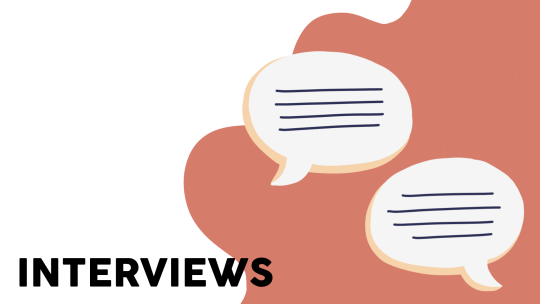
Interviews
Interviews are another way the college can see you as a whole person. Some colleges might provide you with an option to take the interview or decline it, but if given the chance, go for it!
What is the interview, exactly?
For me, this was probably the most nerve-wracking part since you’re practically telling things about yourself to a stranger (can you tell I’m not into socializing?) and it’s like you’re being evaluated and you don’t really know what to expect.
But honestly they’re basically regular conversations where you talk about yourself and the things you love. They’ll ask about your school, your family, your aspirations, your hobbies, but the conversation can lead anywhere–food, human rights, pop culture.
It’ll probably start with an open ended question like tell me about yourself and then branch off from there.
There might also be another type of interview where it’s more like a Q&A about the school and you get to know the college through an alumni (Cornell’s “interview” was like this).
A bad interview really won’t hurt your application, unless of course you fail to answer why you want to go to that university.
It really just gives you an extra boost and another factor to consider when the university decides whether or not to admit you.
Plus, you get to elaborate on things that you didn’t on your application.
Interviews can be anywhere from 15 minutes to 1.5 hours, so don’t worry if you think it was too short or too long.
General Tips
Arrive early. It helps to take a few seconds to breathe and take in your location and surroundings before you start your interview.
Wear something comfortable. I wore a plaid shirt and trousers to most of my interviews. In my experience, Western people tend to be more lenient with clothing, so if you wear a t-shirt, it’s fine. Indonesians (and some other Asians) kinda want you to dress at least semi-formally, maybe a button up and formal pants or a skirt.
If your interviewer asks if you want to order anything, go ahead, they won’t mind, and you’ll get free food or a free beverage. I would usually order coffee or tea.
What should I prepare?
How to answer the question tell me about yourself.
How to answer the question why do you want to go to this school?
How to answer other common questions. Don’t script your answers though. Just think about them so you know what the focus of your answer will revolve around.
Your resume, in case they ask for one.
Research the college and prepare some questions to ask the interviewer.
Research the interviewer, e.g. what they studied, what their job is, anything you think would be important to bring up, like one of their research projects or theses.
After the Interview
Send the interviewer a thank you note/email
Thank them for interviewing you
Recall something memorable from the interview
Relax. Then relax some more.
Helpful links
15 Questions to Know for College Interviews by @solustudies
The 14 College Interview Questions You Must Prepare For by PrepScholar
Other General Tips
Check and recheck! Everything! Like actually tho, I typed in my friend’s TOEFL score instead of my own on one application, and on one essay, I wrote the wrong name of the university. I fixed them, though. But yeah check, recheck, and have someone else check it for you too, if possible.
If you’re strong in the arts, send in an arts supplement! I sent in some poetry samples (although I don’t actually know if they’re good haha) to demonstrate my extracurricular interests.
Just be your honest self in all parts of the application. Don’t try to mold yourself to fit the university you’re applying to. I’m sure the admissions officers will be able to tell if you aren’t being genuine.
And some links…
A Masterpost for Applying to College by @science-is-golden
College Application Timeline by @applicantmusings
A College Student’s Masterpost by @eruditekid
Uni Application Masterpost by @study-early
Stage 3: Post-Application
Relax! You deserve it.
Enjoy your senior year, but again, keep up those grades. Don’t be consumed by senioritis.
Spend more time with your friends since it’s probably gonna be your last year together. Actually spend more time with everyone around you and join activities you normally wouldn’t. But again, don’t overwhelm yourself.
Even though you’re having fun, remember to check your email regularly. Colleges will update you about things, e.g. if you’re missing a component from your application.
Prepare to view your admission results.
Final Notes
College applications are tough, and you’re amazing for being able to put up with such a daunting task. It’s meant to be hard, so applaud yourself!
Also remember not to wear yourself out! Take breaks and revitalize because you’re going to craft a much better application if you have a clear mind and a healthy body.
And when announcement day arrives, be prepared for whatever result you’ll get. Congratulations if you get into your dream school! And if you don’t, that’s alright; maybe the school wasn’t a good fit for you after all.
That’s it for now. Hope you found this post helpful, and best of luck for your college applications!
6K notes
·
View notes
Photo

TIPS ON GETTING THROUGH LAST MINUTE WORK
So I don’t know about you guys, but I am forever guilty of leaving all my work till the last minute and then stressing over it on the night. First off, let me just tell you that in no way am I encouraging you to leave your work till the night before! It is probably the worst thing you could do to yourself, but we still do it anyway to put it off for as long as we can. So, if you are someone who is guilty of this or maybe you find yourself in this situation in the future, then I hope this will help you get through it!
Know your most effective studying environment I’d say your environment is one of the most important factors of studying effectively. Know where you are able to study and do work comfortably and effectively without any distractions. You might study better in a quiet environment, for example, the library, or maybe one which has more background noise, like at a cafe, or at home! However, definitely don’t do work on your bed. It’ll just convince your body to cave in to it’s comfort and next thing you know, you’ll be deep asleep! Some people are also able to study better with music! So decide whether or not playing music will help you focus on your task more, or if it’ll just distract you and make you have your own little music video!
Ignore your electronic devices This is probably one of the biggest reasons why people get distracted while doing work. Whether it be your phone, your laptop, your mp3, your tablet, put that thing away! Put it in the drawer of your table so you won’t see it and get tempted to scroll through your social media apps, or if you really can’t control yourself, put it somewhere out of your reach or even in a different room! Or if you need it there for music or so on, turn off your wifi or put it on airplane mode so you don’t hear that constant ding! (sorry that was a lame attempt) of your notification, begging you to look at it. Obviously, if you have to use your laptop to write an essay or do research, then you cant put that away, so I found an extension for Google Chrome, where it basically blocks the sites that you want it to for however long you want! It’s called StayFocusd so definitely use that if you don’t think you’re able to stop yourself from getting off track.
Take a break Okay, so I know you’re doing your work last minute, but breaks are still necessary. If you continue to do your work nonstop, you will eventually tire yourself mentally and therefore you won’t be able to work effectively. Your breaks don’t have to be long at all! 5 minutes should be enough time, and you can have a light snack like nuts, crackers or pretzels, and definitely drink water to keep yourself awake! An app you can use to time your breaks is Pomodoro! I’m sure most of you know what this is, but for those of you who don’t, it’s basically an app which you can download on your phone and it’s a timer which you can adjust, and you basically just turn the timer on, say for about 30 minutes, and you do as much work as you can and when the timer ends, you get your break! After your break is over, its back to work for another 30 minutes! I definitely think this will help a lot in relaxing you so you don’t stress out as much.
Studying: Highlighting & Notes If you’re studying last minute, don’t read over the whole textbook. Look at your notes and highlight the key points so you don’t spend the whole night reading information which isn’t important. Go over past papers and questions to get an idea of what the exam is going to be like. If it’s easier for you, make flashcards! They’re so much easier to look at compared to just a whole chunk of information, which may be hard for your brain to process especially under stress. Having sticky notes will also help if you jot down a few extra pieces of information on the dot point, to further your understanding.
Essays: Plan Writing essays is one of my absolute worst enemies, I hate it. Something I find which helped me write my essay quicker was to plan what I was going to right beforehand, whether it be just writing it down in dot points, or creating a mind map. Know your points before you start writing. Know what your thesis is going to be for each point and your examples. For your examples, it’s extremely helpful if you have your quotes and annotations ready for you on a separate sheet so you don’t have to look through the whole text to find what you want. Trust me, planning is a major help. It’s much better than writing off the top of your head as you go from scratch and having to sit there and think of a point to write. Also, if it helps, write your body paragraphs before your introduction. This means that you’ll be sure on what your points are and are then able to write a thesis which connects all your points.
SLEEP! Don’t stay up all night trying to study! It has been scientifically proven that sleep helps with your memory and learning. Your brain processes all the information when you sleep so if it doesn’t have enough time to do that, how are you going to remember everything you worked so hard to remember? So get a good night’s rest and you can just study and look over it the next morning.
So overall, just save yourself the stress and don’t do your work last minute! But if you happen to fall under those circumstances, hopefully this lengthy post helped in some way!
8K notes
·
View notes
Text
the hottest study tip i will ever give: keep a tiny stapler on you. i bought a “craft stapler” for $4.99 at a marshalls my freshman year and perpetually kept it in my bag. the # of times i’ve been hailed as a goddess when fellow students are turning in mandatorily-stapled-papers would be payment enough, were it not for the # of times in college i’ve put 2 plastic plates of free luncheon food together & stapled the edges for a free tubberware. pls buy a tiny stapler
31K notes
·
View notes
Note
hey emma, hope you’ve had a good day :) i feel like i haven’t revised enough for my upcoming tests and just feel so guilty for not revising enough - any tips/ advice on how to feel less guilty??
Hey! I think the three keys things are: having effective study sessions, scheduling breaks and adopting a new mindset. I’ll try to be detailed so hopefully it makes sense.
having effective study sessions without thinking in terms of time - I’ve mentioned this a lot, especially when people ask how much I study, but it isn’t about the time spent studying, but the quality of work. Quality over quantity! I could say “well, I study for 6 hours every day” and then you could be thinking “shit, I only study for 2 hours”. But, comparing our times is irrelevant. My 6-hour study session could be plagued with distractions, overly-long breaks, etc. It doesn’t always mean I’m actually working. (This is a good thought when people are trying to make out as if they’re better than you for studying longer - take things with a pinch of salt). But anyway, if you’re managing to get the same amount of quality into just 2 hours, then you’re better off, right? You’ve reduced the time needed to study because you’re more effective. Being able to focus on a single task, work thoroughly, overcome distractions and actually implementing beneficial study strategies is more important than the length of time spent studying. You don’t have to feel guilty for not studying if you know that your study time is sacred and actually working. There is absolutely no reason to feel guilty by having say a 1-hour study session - solid work, ultimate concentration - and then going out afterwards for some fun. I think the main thing about feeling guilty is thinking you’re not spending time wisely but effectiveness is more important than time.
scheduling breaks - this is a must and shouldn’t make you feel guilty at all! Without breaks, you’re going to burnout and that is much worse. Try to add breaks to your study session so you can see them as part of the plan - rather than you just walking away at random times and feeling bad that you have. A fab quote is “time you enjoy wasting is not wasted time.” You can’t be mad at yourself for doing things other than studying. If you did, you’d either study all the time or be in a perpetual cycle of feeling demotivated by stress. Neither is good. When you do have free time, think about the alternative benefits. Hanging out with friends, you’re socialising! Reading a book, you’re enjoying some downtime and improving your grammar and gaining knowledge. Watching a movie, enjoying someones artistic work and having some form of escapism. Tidying up or organising, you are investing in yourself.
adopting a new mindset - if you’re valuing your studying in terms of “I must study for 4 hours every day” then seeing you not completing that is going to make you feel worse. You have to adjust how you see productivity. It is not how much you can cram into the hours you’re awake or checking off each task, but how much of the important stuff you can invest time into. This doesn’t mean “every single that that is important must be done”, but more so taking incremental steps to completing them. However, if you change your thinking to “I should complete/make a start on 3 tasks each day” then you’re going to feel less guilty because you’re not comparing yourself to this incredibly high standard. It can be tricky but reminding yourself of that should help. Another small tip is to make an action list of things that aren’t date specific. You’re going to feel more demotivated and unproductive if you’re constantly writing the same things over and over. If you just have an action list or study guide (like this), then you can work off it regardless of the date.
You can be a successful student who balances their own personal time and studies. You can’t be all of one. You have to make time for your mental and physical health :-) I really hope this gives you peace of mind xx
235 notes
·
View notes
Text
apush tips
throughout the year
remember that apush is more detail oriented than other ap histories
take really good notes
try to recognize common themes and major turning points
practice writing essays/dbqs/short answers a lot (your teacher should take care of this in class hopefully)
crash course it out
review
start studying two-ish months before the exam (if your class is on track, you should start studying when the teacher starts reviewing)
review in reverse so that you can better understand historical causality and the last thing you study will be what you learned in august/september
buy a box of flashcards (barron or 5 steps)
do lots of practice tests, at least one of which should be done in a realistic setting (at a desk, in the morning, timed, all parts of the test)
i really love the ap us history crash course book by larry krieger to read the last couple days before the exam because it’s got the simplified information and lots of helpful hints
don’t study the night before the exam – relax
general
know your periods (reconstruction, great depression, gilded age, etc)
change and continuity over time!!! (slavery >> civil rights // republican motherhood >> 1970s women’s lib)
don’t memorize every battle of every war just know really important ones/turning points
please please please use synthesis when writing essays it’s one sentence worth a full point seriously even if you think it’s a terrible synthesis WRITE IT DOWN
while on the topic of writing, learn how to write an apush-specific thesis it is the foundation for your entire essay/dbq
don’t get too scared of dbqs they literally do half the work for you all you have to do is line up the documents and add a bit of background information/a few examples
you can do this. study, do the work, and breathe. it’s all going to turn out fine.
437 notes
·
View notes
Text
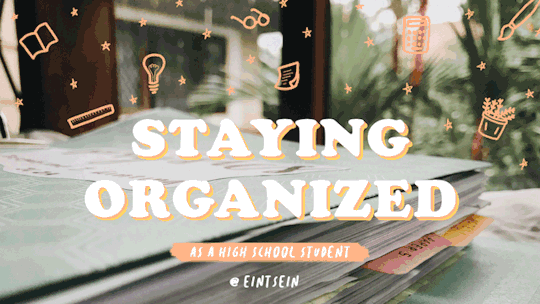
Hey guys, so I’m nearing the end of my senior year, and it’s been great so far! I accomplished my academic tasks efficiently and didn’t burn myself out, and I think the main contributor to my success as a student is my organization system. This system has been refined throughout my high school years, but I think now I’ve finally found the most effective methods.
Please remember that this isn’t the only organization system you can adopt; this is just the one that works the best for me, and I hope that by sharing it with you, you’ll gain a new perspective on how to stay organized as a high school student.

The first thing I wanna talk about is my notebook system, which I briefly mentioned in my Guide to Note-Taking.
My notebook system comprises three types of notebooks: the Everything Notebook, the subject notebook, and the revision notebook.
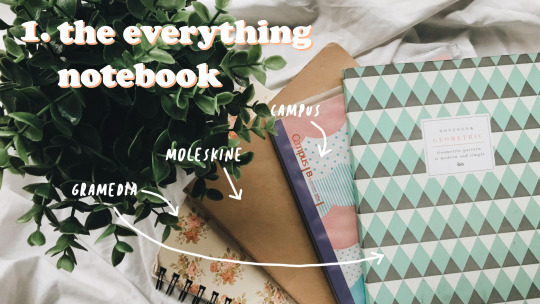
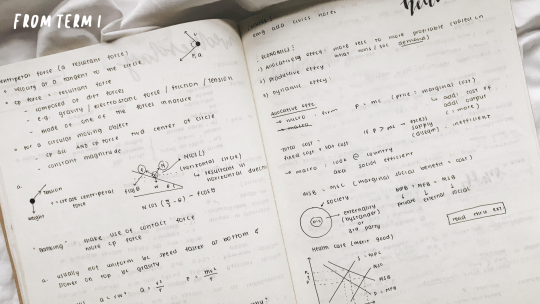
The Everything Notebook
The first stage is in-class notes. I only bring one notebook to school every day. I call it my Everything Notebook, and this is where I write down all of the notes I take in class. This way, I don’t have to lug around six notebooks where I’m only going to use a few pages in each of them that day.
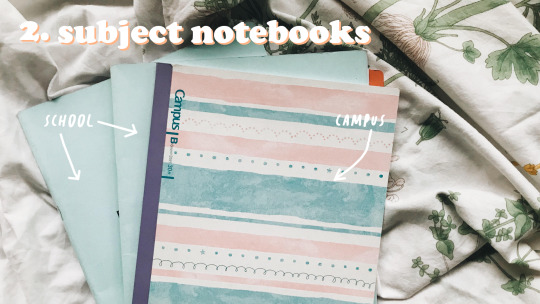
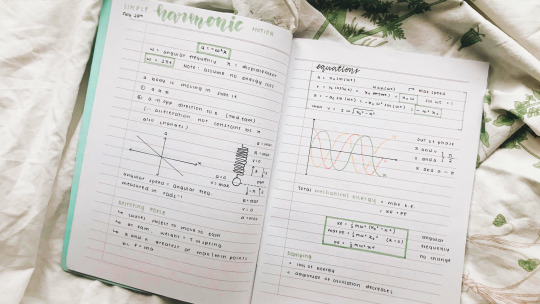
Subject Notebooks
At the end of the day, I would revise my notes and compare them to the syllabus so I know where we are in the learning process. I would then transfer my class notes from my Everything Notebook to my different subject notebooks. This is stage two. I also start to jazz up my notes because I use the notes in my subject notebooks to study for tests.
In addition to my class notes, I include material from my teachers’ notes that they might not have elaborated on, as well as points in the syllabus (I’m currently taking A2) that were only glazed over briefly, or not at all, in some cases. (Note: this does not mean they completely skip a chapter or topic; it’s more like they missed a few bullet points that should be in my notes but aren’t. An example would be if we’re learning about phenol reactions and the teacher forgot to mention the use of FeCl3 as a test for phenol.)
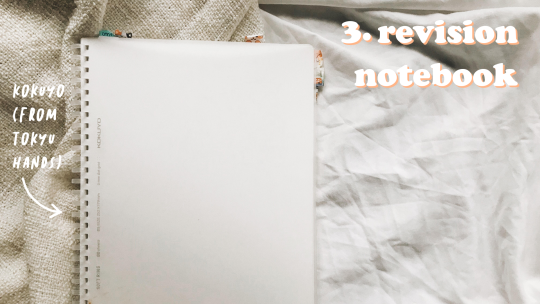
Revision Notebooks
Stage three comes a little later, when exam week is just around the corner. Essentially, I rewrite and improve my notes from my five different subject notebooks into a single revision notebook or binder. (Recently, I’ve opted for a revision notebook because they’re lighter and easier to carry around.)

Because my teachers don’t always teach in the order of the syllabus, the first thing I do is organize my notes according to the syllabus. I would then fill in any other missing gaps in the material that hadn’t been filled in stage two.
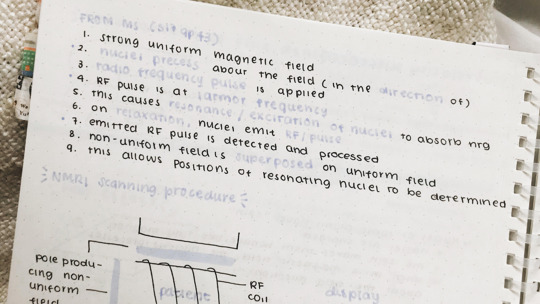
When compiling material for my revision notebook, I use as many sources as possible: my own notes, my teachers’ notes, youtube videos, online sites, and my favorite, the mark scheme! I add in some answers from past papers (explanations only, so no calculations) mainly to secure marks. It’s safer to memorize definitions straight from the mark scheme than from the textbook or from handouts. I also do this to ease my memorization, especially for topics that require lengthy explanations. It’s a lot easier to remember the 6 points I need to explain the principles of NMRI than to remember everything in the four-page handout my teacher gave me.

Folders and binders are essential to organizing your papers. Some people keep a single accordion folder for all their papers, but for me it’s just too heavy to carry around all the time. The same goes for subject folders that are brought to school every day.
Instead, my binder/folder system comprises my Everything Folder and my subject binders.
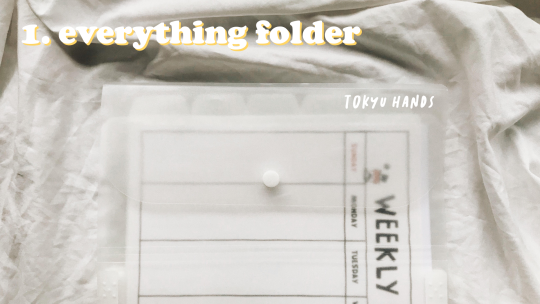
The Everything Folder
The folder I carry with me to school every day is this A4 folder I got from Tokyu Hands. It has 5 pockets, one for each day of the week, so all the papers I receive on Monday will go behind the first divider, and so on.
Some people also keep blank papers in their folders; I don’t because my school has its own lined paper and graphing pads that I keep under my desk that I use if a teacher asks us to do an assignment on those papers. If I do work at home, I prefer to just use a plain A4 paper or a legal pad.

Subject Binders
At the end of the week, I’ll sort my papers into my subject binders. Sometimes I’ll keep some papers in the folder if I think I’ll be needing it the next week. This usually only applies to worksheets because all my teachers’ notes are available on Google Classroom, so I can access them even if I don’t physically have them.
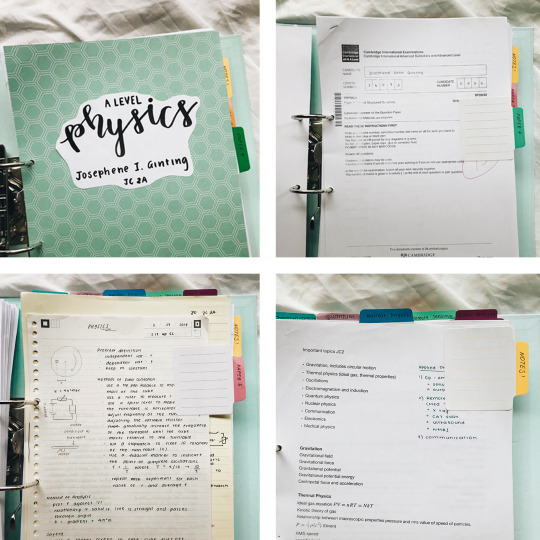
Each of these binders have sections inside them:
Physics: 1 for handouts, notes, and tests, 1 for Paper 4 (Theory), 1 for Paper 5 (Practical Planning). I included extra tabs to mark the different topics in the handouts section.
Chemistry: same as Physics.
Economics: 1 for Paper 3 (MCQ), 1 for Paper 4 (Case Study and Essay). A lot of my Economics material is online, though.
English: 1 for Paper 3 (Text and Discourse analysis), and 2 for Paper 4 (Language Topics, which includes 1 for Child Language Acquisition, 1 for World Englishes). Past papers, handouts, and notes all go under their respective topics.
Mathematics: I just keep everything together because I never revise math and just constantly do past papers.
This makes it easier for me to revise each subject because I can just take one binder with me instead of a messy folder with everything just shoved in there.

I keep a magazine file for each of my A-Level subjects (English and Mathematics are combined). All my textbooks, revision guides, and subject notebooks are kept here, so if I need to revise one subject, that’s the magazine file I’ll take out.

These magazine files prevent any small things (like my book of flashcards) from being shoved to the back of my bookshelf, or materials from different subjects from getting mixed up.

In my senior year, I mostly plan using this app called Edo Agenda. It syncs across all my devices for free and has all the features I need: a to do list to organize tasks, monthly and weekly calendars to organize events, a journal to organize notes and memos.

I used to bullet journal regularly, but it takes too much time during weekdays, so now I just bullet journal for the therapeutic effects it gives me, and I use an app for organizing tasks and events. Sometimes at the end of each week, I’ll transfer my tasks to my bullet journal and then decorate the page, but again, this is just for its therapy.

Organizing your school supplies is just as important as organizing your papers and notes. With a more organized backpack and pencil case, you won’t waste time looking for your things at the bottom of an abyss.
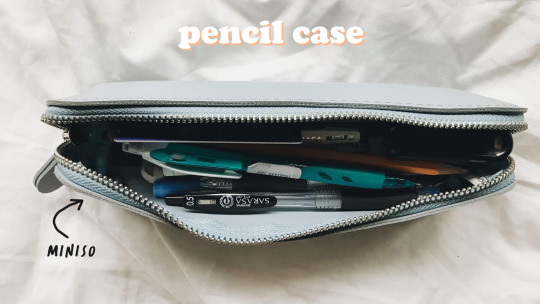
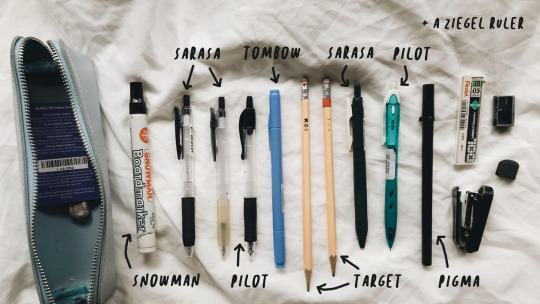
Pencil Case
I don’t find it necessary to bring so much stationery to school unless I plan on making notes at school (usually during revision week).
Backpack
Because we’re already in the revision term, I don’t really carry a lot of things in my everyday backpack, just the following:
Pencil case
Everything Notebook
Everything Folder
Revision notebook
Kindle
Phone
Wallet
Earphones
Calculator
Speaker
Drinking bottle
A pouch with things like a hairbrush, pads, and lip balm
And that’s all for now! I hope this post will help you organize your school life (if you haven’t already) or at least provide some useful insights on some ways to stay organized as a high school student.
45K notes
·
View notes
